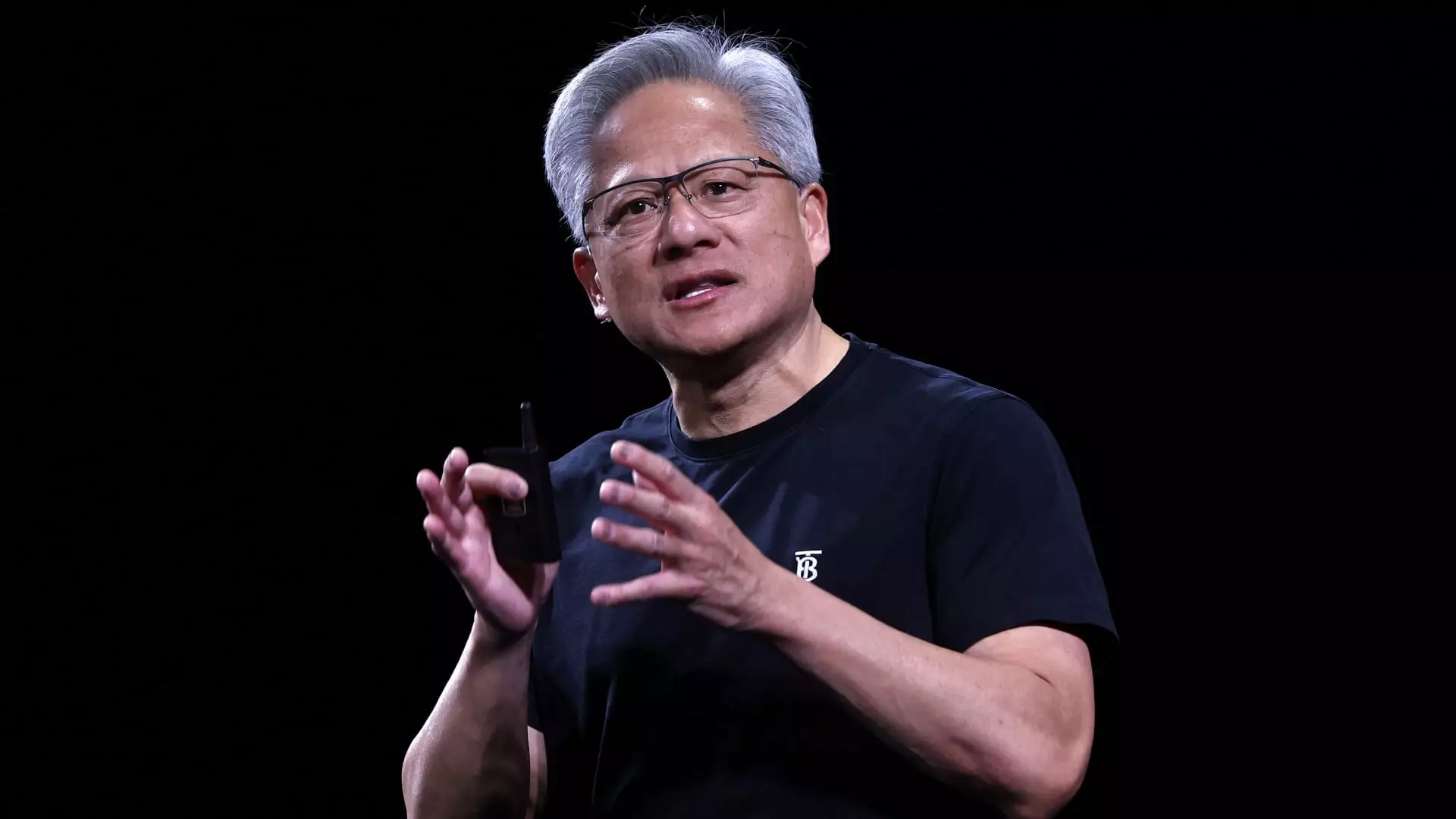Jensen Huang, the co-founder and CEO of Nvidia, has proven himself to be an extraordinary figure in the tech industry, and his recent tour through Europe has amplified that notion. In cities flooded with energy and opportunities, such as London and Paris, Huang has been likened to a rockstar—his popularity and charisma drawing crowds akin to those who flock to major musical concerts. Yet, his message transcends mere celebrity status. Huang championed Nvidia not merely as a manufacturer of graphics processing units (GPUs), but as a pivotal architect in the fabric of artificial intelligence (AI) infrastructure. This distinction is crucial, for it sets a tone for a larger dialogue about sovereignty, innovation, and geopolitical competition in the AI arena.
The allure of Huang’s persona captured the attention of prominent politicians like U.K. Prime Minister Keir Starmer and French President Emmanuel Macron, both eager to share the stage with him. Huang’s communication style resembled that of an impassioned public figure motivating a crowd, which is fundamentally rooted in his belief that AI will shape the destiny of nations. His assertion that AI should be approached as infrastructure akin to electricity speaks volumes about his long-term vision for both technological adoption and societal progression.
A Vision of Sovereign AI
One of the key themes emerging from Huang’s discussions is the concept of “sovereign AI”—a notion which resonates particularly well in Europe, a region striving for technological independence. By advocating for localized data centers that serve domestic needs, Huang addresses a pertinent concern among policymakers who are wary of over-reliance on foreign technology. The partnership announced between Nvidia and the French startup Mistral to create an AI cloud is a prime example of this vision in action. It symbolizes Huang’s commitment to helping nations not only keep pace in the AI race but also cultivate their unique ecosystems.
The urgency for European nations to coalesce and collaborate is underscored by Huang’s assertion that a joint capacity is essential for meaningful competitiveness. While the concept of collaboration isn’t foreign to the European Union, Huang presents it with fresh vigor, challenging Europe to embrace the future of technology collectively rather than as disparate entities. This sense of unity can ignite innovation and accelerate the capabilities necessary to thrive in a global landscape increasingly dominated by digital technologies.
The Implications of Geopolitical Tensions
However, Huang’s tour was not without discussions of geopolitical realities, particularly in relation to China. The U.S. export restrictions preventing Nvidia from selling advanced chips to Chinese firms reflect a broader trend of technological standoff between nations. Despite these constraints, Huang recognizes the tenacity of Chinese firms like Huawei, which are working to close the technological gap. Huang’s remarks that “Huawei has got China covered” point towards a troubling scenario where the U.S. may find itself ceding ground in AI development if it remains detached from the global marketplace.
This delicate dance of competition and collaboration is rife with tension. As Huang aptly noted, Chinese firms have the potential to develop capabilities that can rival American technologies if barriers remain in place. It speaks to the necessity for the U.S. to reassess its approach; an eagle-eyed viewpoint on Chinese advancements is indispensable. There may be moments when strategic interests dictate standoffishness from U.S. firms, but as Huang’s insights suggest, this may ultimately lead to a loss of global influence in AI technology.
The Future is Now: Autonomous Vehicles and Beyond
Beyond the promising discussions on infrastructure, Huang passionately conveyed a vision for the coming decade, predicting it to be the era of autonomous vehicles and robotics. His assertions regarding the imminent “inflection point” of quantum computing add a layer of urgency to the conversation. It’s not just about keeping up anymore; it’s about exerting dominance in transformative spheres of technology that hold the key to solving humanity’s most complex issues—from drug discovery to resource optimization.
Nvidia’s position to capitalize on these trends is formidable. With the advent of AI permeating industries from transportation to healthcare, seeing Huang as merely a figurehead echoes the trivialization of the possibilities he seeks to unlock. His fervor to drive innovation catapults him to the forefront, urging nations and companies alike to join the AI revolution or risk faltering in the digital age.
Jensen Huang’s European tour serves as both a wake-up call and an invitation. His vision of an interconnected future where countries seize control of their technological destinies encapsulates the current zeitgeist. Europe stands at a crossroads, and with the right investments and collaborative spirit, it could carve out a leading role in the global narrative of AI technology.


Leave a Reply